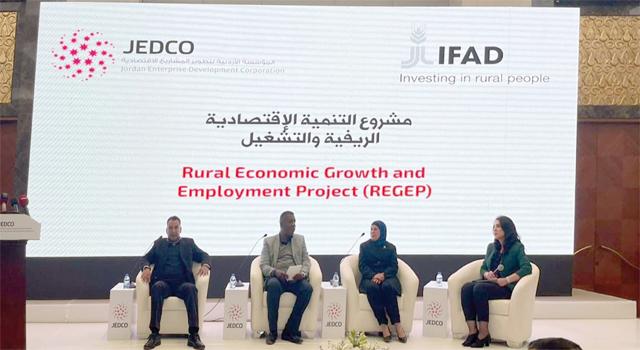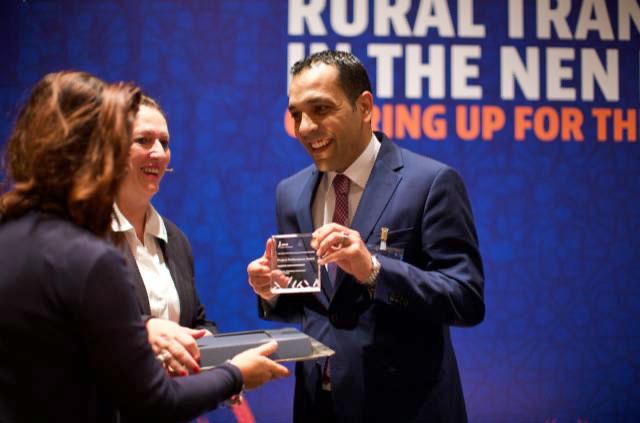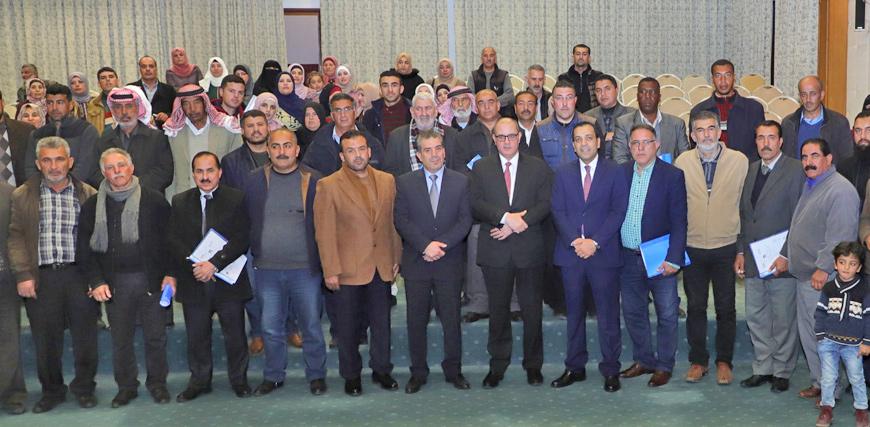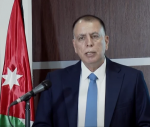You are here
JEDCO launches 2nd phase of Rural Economic Growth and Employment Project
By Rayya Al Muheisen - Mar 12,2022 - Last updated at Mar 12,2022

Speakers during the launch of the second phase of the Rural Economic Growth and Employment Project on Thursday (Photo courtesy of JEDCO)
AMMAN — The Jordan Enterprise Development Corporation (JEDCO) has launched the second phase of the Rural Economic Growth and Employment Project (REGEP).
Abdel Fattah Al Kayed, CEO of and deputy of Minister of Industry, Trade and Supply, launched the second stage of REGEP on Thursday.
The project was found in 2015 and is implemented in cooperation with the Kingdom of Netherlands and International Fund for Agriculture Development (IFAD).
The second stage of the project with a budget of 16.5 million euros will conclude by 2024. The targeted groups include Syrian refugees, agricultural companies, rural households in addition to small farmers and exporters, according to a presentation that took place during the event.
The project’s goals are to reduce unemployment as well as enhance farmers’ resilience and develop their skills.
The project aims to cover all Jordanian governorates. The first stage of the project included Madaba, Balqa, Ajloun and Mafraq. The second stage of the project covers Karak, Irbid, Maan, Zarqa and Tafileh.
During the first phase of the project, which lasted from 2015-2021, a total of $11.340 million were allocated for the project with over 8000 beneficiaries.
The project provided over 2000 job opportunities, of which 1,400 were women, according to a slideshow during the launch.
“Enhancing farmers resilience, engaging with local farmers is one of the project’s objectives,” Melle Leenster, Dutch embassy representative, said during his speech.
Leenster added that as “the world is politically on fire, value chains are at risk, moreover, export cultures are vulnerable, but vulnerability can be strengthened”.
“What makes this day special is the recognition of the necessity and importance of mainstream climate change adapting practices,” Vrej Jijyan, IFAD representative, said during his speech.
He added that the second stage will address challenges related to water management and increasing the capacity of farmers towards climate change, as well as reducing water use in agriculture and promoting water efficient irrigation systems.
“Focusing on hydroponics is an area of development for the project,” project participant Ahmad Horat, said during the discussion.
Meanwhile, Sameeh Hashem, who is also a participant, said that the training course was beneficial on a personal level as well as for his career path development.
He added that now that he works as a mentor, it is time for him to get the satisfaction of giving back to his community.
Related Articles
AMMAN — The Jordan Enterprise Development Corporation (JEDCO) on Wednesday held a workshop intended to re-identify the targeted corps within
AMMAN — Jordan, represented by the Jordan Enterprise Development Corporation (JEDCO), on Tuesday won the Best Project Performance Awar
AMMAN — The Jordan Enterprise Development Corporation (JEDCO) announced on Thursday that it had signed 150 agreements related to the Rural F

















